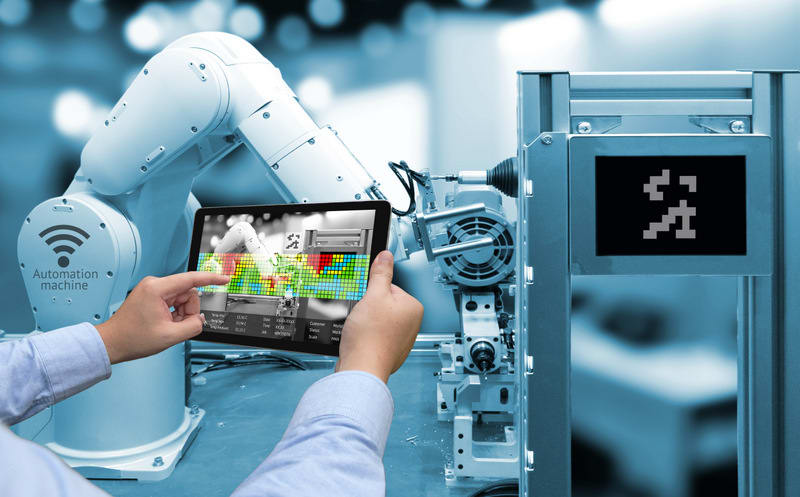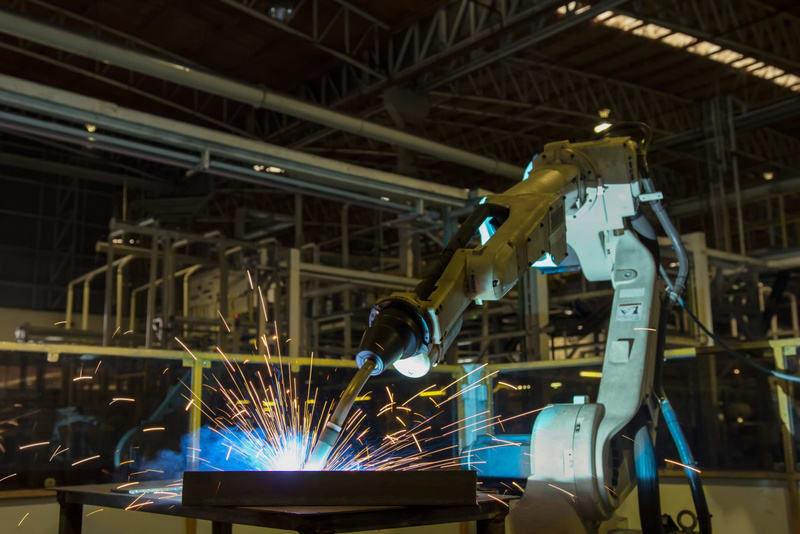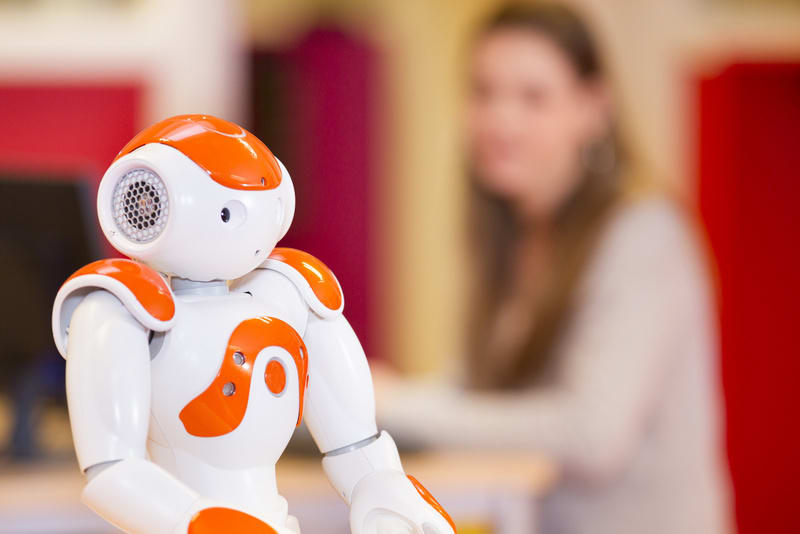Are Robots Coming for You? Top Three Myths and Misconceptions about Machines
It’s one of the most familiar television and movie tropes out there: Man invents machines; machines become sentient and take over the world. How much of this is a real threat, and how much of it is merely science fiction fodder? As automated technology advances, new questions will continue to arise about what robotization means for the world and its human inhabitants. Here’s a closer look at three of the most common myths about machines, along with whether they hold up, according to experts in the field.
- Student Tips

It’s one of the most familiar television and movie tropes out there: Man invents machines; machines become sentient and take over the world. How much of this is a real threat, and how much of it is merely science fiction fodder? As automated technology advances, new questions will continue to arise about what robotization means for the world and its human inhabitants. Here’s a closer look at three of the most common myths about machines, along with whether they hold up, according to experts in the field.

Myth #1: Robots destroy jobs.
Robots can make your salad. They can clean your house. They may soon even assume caregiving responsibilities for aging loved ones. But is your livelihood in jeopardy?
While some people do argue that robots are coming for your job (and, indeed, certain types of jobs are particularly at risk), others are quick to point out that forecasts heralding a “jobless future” are unlikely to come to fruition for a variety of reasons. For starters is the matter of mere economics: Even if a robot can do a job better than a human, the mass development, building, marketing, selling, and operating of machines may be cost prohibitive. Then there’s the fact that while robot workers may appeal to some, they may not appeal to others. The takeaway? While robots may eliminate some jobs, humans will always be part of the workforce.
Furthermore, robots may open up new employment prospects. Says Mental Floss, “Americans have had anxiety over being replaced with new technology since the 1800s. As has been the case throughout history, future technological developments will likely also play a hand in job creation. So while bank tellers, telemarketers, and loan officers may be taken over by computers in the not-too-distant future, new jobs we can’t yet predict will likely take their place.”

Myth #2: Robots are a 21st-century invention.
While we make think of machines as futuristic, they’re also very much part of the past. In fact, simple machines designed to make life easier date back two million years to stone tools made by early hominids in Africa. And while complex machines debuted more recently, they still go back to 100 BC or so. Even the concept of humanoid machines is nothing new: Leonardo da Vinci engineered a “robot” in the late 1400s, while George Devol designed a programmable “arm” to perform tasks in 1954.
Just as machine technology looks very different today than it did one hundred, one thousand or one million years ago, so it will look very different one hundred, one thousand, or one million years into the future. And no one knows what that will look like. But we can know what they won’t look like, As Imperial College computer scientist Murray Shanahan told Business Insider, “There's no particular reason to think that an AI that's made to be very smart is going to have the same kind of motives or emotions or feelings as humans.”
Which brings us to our next robot-related myth...

Myth #3: Robots will have human-like consciousness.
Come on, admit it. You felt bad for C3PO when the Sand People tore off his arm in Star Wars. But experts say that’s you just projecting your human emotions onto a machine -- a machine which will never have the same feelings as humans.
As Facebook’s Artificial Intelligence Research Director Yann LeCun explained to Business Insider, “There is no reason for AIs to have self-preservation instincts, jealousy, etc. But we can build into them altruism and other drives that will make them pleasant for humans to interact with them and be around them. Most AIs will be specialized and have no emotions. Your car's auto-pilot will just drive your car.”
For the same reason, there’s no cause to fear machines rising up and taking over. University of Montreal computer scientist Yoshua Bengio told Business Insider, “The truth is that you can have intelligent machines that have no self-conscience, no ego, and have no self-preservation instinct because we build these machines. Evolution gave us an ego and a self-preservation instinct because otherwise we wouldn't have survived. We were evolved by natural selection, but AIs are built by humans. We can build machines that understand a lot of aspects of the world while not having more ego than a toaster.”
One last thing to keep in mind? While robot capabilities may seem mind-blowing, the technology is inherently conceivable for one reason above all else: Robots owe their mere existence to human conception. Bristol University roboticist Sabine Hauert tells Business Insider, “Behind every behavior of your robot or behind ever AI, there’s really a developer that spends months making it work in one specific scenario. There’s really nothing magical about AI -- it’s really just a lot of work.”
Read more about studying robotics.

Joanna Hughes
Author
Joanna worked in higher education administration for many years at a leading research institution before becoming a full-time freelance writer. She lives in the beautiful White Mountains region of New Hampshire with her family.
Read related articles

Six Things All International Students Should Do Before Traveling

Why You Should Befriend International Students
